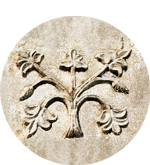Pleasures of knowledge / Радости познания. Тринадцатый международный конгресс историков средневековой философии
Сегодня в баварском Фрайзинге открыл свою работу важнейший, проходящий раз в пять лет мировой форум историков средневековой философии, организованный Международным обществом изучения средневековой философии. Основное направление исследований, выбранное в этом году оргкомитетом, выяснить, что для христианских, иудейских и мусульманских философов значила их профессия в рамках поисках радости, счастья, спасения. С программой можно познакомиться здесь
Сегодня в баварском Фрайзинге открыл свою работу важнейший, проходящий раз в пять лет мировой форум историков средневековой философии, организованный Международным обществом изучения средневековой философии. Основное направление исследований, выбранное в этом году оргкомитетом, выяснить, что для христианских, иудейских и мусульманских философов значила их профессия в рамках поисках радости, счастья, спасения. С программой можно познакомиться здесь.
Welcome to the SIEPM Congress 2012 in Freising near Munich
Taking place from August 20th to August 25th, 2012.
The aim of the conference Pleasures of Knowledge is to investigate how professional philosophers of Latin, Greek, Jewish or Arabic background, dealt with the claim that knowledge means pleasure and beatitude, in the thousand years between Boethius and Nicholas of Cusa. By taking into account the different disciplines represented inside SIEPM, our conference will also investigate how they made use of this view, how these authors supported this view, concealed it, sharpened it or even idealized it. Continuing the work started at the SIEMP conference in Palermo in 2007, which focused on the plurality of philosophies in the Middle Ages (Universality of Reason – Plurality of Philosophies in the Middle Ages), the conference will be divided into four different main topics (desiderium, ordinatio, contemplatio, perfectio), so that the pleasures of knowledge may be also considered from different heuristic perspectives. In the organisation we will follow the standard format for SIEPM-conferences, that is: plenary sessions with invited speakers in the morning; thematically arranged sessions in the afternoon. The afternoon session will be dedicated to the presentation of papers selected by the chair of each session together with the organisers on the basis of the abstracts received through the call for papers. In this way the format will be to consider the four main topics of the conference from a twofold perspective.

